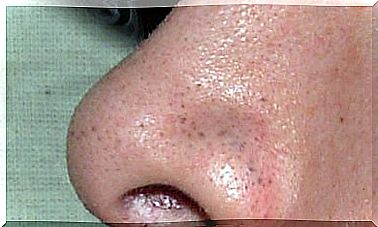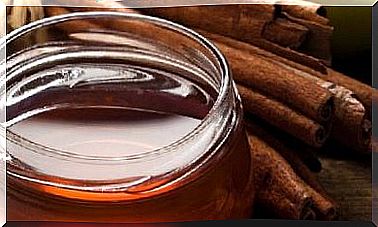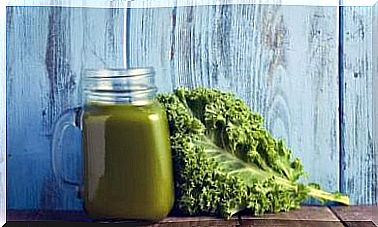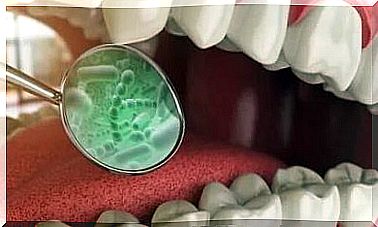How Can You Find Out If You Suffer From Gastroesophageal Reflux Disease?
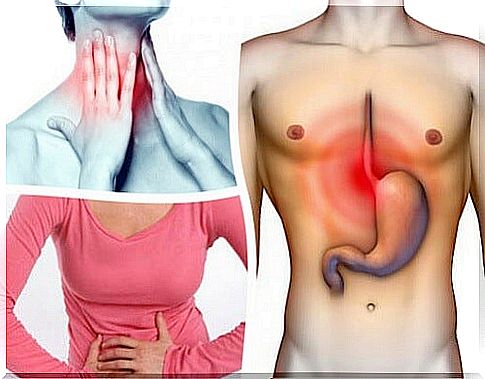
A condition called “gastroesophageal reflux” is a digestive disorder that is becoming more common nowadays. It manifests itself in the form of a burning sensation and discomfort in the stomach and esophagus. Generally, these symptoms occur after eating or drinking something.
You may suffer from gastroesophageal reflux disease without realizing it. To give you a helping hand, in today’s article we invite you to discover the main features of this disorder, as well as how you can treat it.
What does it mean to have gastroesophageal reflux?
To understand what it means to suffer from gastroesophageal reflux, we must first look at the words that make up this term.
The word “reflux” means “return.” When the body is healthy, digestion begins immediately after serving the meal and is carried out by a series of muscles and acids. In this process, the access roads to the stomach are blocked so that irritating fluids do not enter the esophagus.
If you suffer from gastroesophageal reflux, the pathways to the stomach remain open. As a consequence, gastric juices enter the esophagus along with the food consumed.
Basically, it’s the same as when we pour. Gastroesophageal reflux leaves an acidic taste and a burning sensation in the throat and oral cavity. If a patient experiences this problem several times a week, we can say that he suffers from gastroesophageal reflux disease.
What factors cause gastroesophageal reflux disease?

This disease manifests itself after a meal (whether it has been copious or not) and can be caused by the following factors:
- A hiatal hernia that presses on the upper stomach, weakening the esophageal sphincter and allowing gastric acid to rise from the stomach.
- Certain medications such as aspirin, anticholinergics, hypotensives, bronchodilators and dopamine. Each of them affects the stomach and esophagus in a different way.
- Unhealthy eating habits, such as eating at the wrong time, eating spicy or irritating foods, and diets high in processed or fast food.
- Pregnancy. Many women suffer from gastroesophageal reflux disease during pregnancy because the fetus presses on the stomach, which weakens the esophageal sphincter. If you are in this situation, it is advisable to carefully monitor your health, the problem can occur even after giving birth.
- Overweight. This case is similar to the previous point. Abdominal fat puts excessive pressure on the stomach, and ingested food and gastric juices go up into the esophagus.
- Psychological tension, stress, anxiety, financial problems and nervousness can upset the stomach.
The most common symptoms of gastroesophageal reflux are:
- A burning sensation or pain in the sternum (heartburn)
- Regurgitation (food consumed returns to the mouth)
- Difficulty swallowing
- Non-cardiac chest pain (the patient may feel like he has a heart attack)
- Retching
- A feeling of heaviness after dinner
- Nausea
- Hiccup
- Neck discomfort
- Aphonia
- A feeling that something was stuck in his throat
- Night cough
- Bronchoconstriction
- Internal bleeding
- Anemia
How can gastroesophageal reflux be treated?

To avoid gastroesophageal reflux, it is essential to adopt healthy eating habits. For example, avoid foods such as:
- The coffee
- Soft drinks
- Chocolate
- Tomato sauce
- Alcoholic beverages
- Vinegar
- Animal fats (such as sausages)
- Strong spices
- mustard
- pepper
- Hot pepper
- Milk and other dairy products
Also, to treat and prevent gastroesophageal reflux disease, you will need to:
- Avoid excessive physical activity after a meal (it is advisable to either sit down or go for a walk)
- Do not lie down immediately after eating
- Don’t bend down right after dinner
- You don’t eat very fast
- Do not carry heavy objects immediately after lunch or dinner
- You chew the food you eat very well
- You don’t talk while you eat
- Avoid eating if you are angry or upset
- Do not drink soft drinks or juices sweetened with sugar during a meal
- Avoid smoking
- You serve dinner early
- Do not wear belts or clothes that tighten the stomach
- Adopt a healthy diet
- Yoga and meditation practices
Foods indicated if you suffer from gastroesophageal reflux
I already told you what to avoid, so below we present the foods indicated for those suffering from gastroesophageal reflux:
- Fresh salads
- Natural juices
- Vegetable milk (rice, oats, almonds, millet)
- Probiotics (yogurt or kefir)
- Honey
- NUTS
- Herbal teas (especially sorrel root)
- Cardamom
- Ginger
- The water
- Basil
Natural remedies for gastroesophageal reflux disease
When you experience a gastroesophageal reflux attack, do not hesitate to try the following simple natural remedies:
Remedy with apple cider vinegar

Mix a tablespoon of apple cider vinegar with a glass of water. Drink the mixture to calm your stomach and facilitate digestion. This remedy works immediately and is ideal after serving a meal.
Sodium bicarbonate remedy
Baking soda has thousands of uses. Among other things, this product is useful for treating stomach pain, gastritis and gastroesophageal reflux. Simply dissolve a tablespoon of baking soda in a glass of water and drink the remedy immediately.
Remedy with aloe vera juice
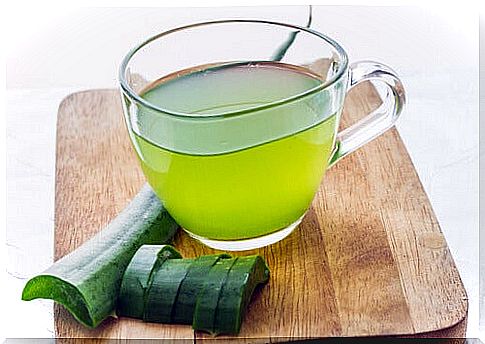
Do you have an aloe vera pot at home? If your answer to this question is “no”, we advise you to purchase this plant as soon as possible. Aloe vera is an effective remedy for many diseases, including gastroesophageal reflux.
Dilute the gel of an aloe vera leaf in half a cup of water and drink the remedy as soon as the symptoms of the disease are felt.

